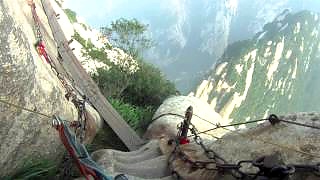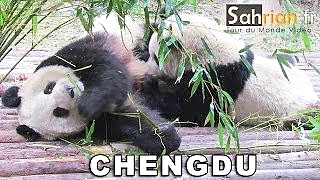
|
Mount Hua, or HuaShan, is one of China's Five Great Mountains, renowned for its steep trails, breathtaking views, and significant Taoist history. Located in Shaanxi Province, near the city of Huayin, Huashan attracts adventurers and pilgrims alike. This guide provides an in-depth look at the best attractions, activities, and tips for visiting Huashan.
Top Attractions
The Five Peaks of Huashan
Mount Hua consists of five main peaks, each offering unique scenery and experiences:
East Peak (Zhaoyang Peak): Known as the "Sunrise Peak," it is the best spot to watch the sunrise.
West Peak (Lianhua Peak): Also called the "Lotus Peak," it is famous for its striking rock formations that resemble a lotus flower.
South Peak (Luoyan Peak): The highest of the five peaks at 2,154 meters, offering panoramic views.
North Peak (Yuntai Peak): Known as the "Cloud Terrace Peak," it serves as the starting point for many hikes.
Central Peak (Yunv Peak): Also known as the "Jade Maiden Peak," it is named after a Taoist legend.
Huashan Plank Walk
The Huashan Plank Walk is one of the most thrilling attractions on the mountain. The narrow wooden walkway is attached to the sheer cliff face of the South Peak, offering an adrenaline-pumping experience and stunning views.
Chess Pavilion
Perched on a precarious rock, the Chess Pavilion is a small structure with legendary associations. According to legend, it is where a deity played chess with a mortal.
Taoist Temples
Mount Hua is home to several ancient Taoist temples, including the Jade Spring Temple at the base of the mountain and the Yuquan Temple. These temples are important pilgrimage sites and offer a glimpse into the mountain's spiritual significance.
Geology of Huashan
Mount Hua is part of the Qinling Mountain range and is primarily composed of granite. The mountain's distinctive steep slopes and sharp peaks are the result of tectonic uplift and erosion over millions of years. The granite rock faces provide both a dramatic landscape and a challenging environment for climbers.
Touring Huashan
Planning Your Visit
Visiting Huashan requires careful planning due to its challenging terrain and the variety of routes available. A typical visit can take one to two days, depending on the routes and peaks you choose to explore. Here is a suggested itinerary:
Day 1: North Peak and the Plank Walk
Morning: Take the cable car from the East Gate to the North Peak. Spend the morning exploring the North Peak and its surrounding trails.
Afternoon: Head towards the South Peak for the Huashan Plank Walk. Ensure you have the proper safety gear and follow all safety instructions.
Evening: Consider spending the night on the mountain at one of the guesthouses or temples to experience the sunrise from one of the peaks.
Day 2: The Five Peaks
Early Morning: Watch the sunrise from the East Peak.
Mid-Morning: Hike to the Central Peak, then continue to the West Peak to see the Lotus Flower Rock.
Afternoon: Ascend to the South Peak, the highest peak, for panoramic views. Descend back to the North Peak and take the cable car down.
Activities and Experiences
Hiking
Huashan offers challenging hikes with rewarding views. Trails are steep and can be narrow, requiring a good level of fitness and caution. Popular routes include the ascent from the East Gate to the North Peak and the circular route covering the five peaks.
Photography
The dramatic landscapes of Huashan provide excellent opportunities for photography. Key spots include the sunrise from the East Peak, the Plank Walk on the South Peak, and the panoramic views from the highest point.
Local Cuisine
After a day of hiking, try local Shaanxi cuisine, known for its hearty and flavorful dishes. Specialties include biangbiang noodles, roujiamo (Chinese hamburger), and various dumplings. There are several restaurants and food stalls at the base of the mountain and near the East Gate.
Travel Tips
Best Time to Visit
The best times to visit Huashan are spring (April to June) and autumn (September to November) when the weather is mild and the views are clear. Summer can be hot and crowded, while winter can be cold and snowy, making some trails hazardous.
Getting There
Huashan is accessible by train, bus, and car. The nearest major city is Xi'an, from where you can take a high-speed train to Huashan North Railway Station. From there, shuttle buses or taxis can take you to the mountain's entrances.
Accommodation
Accommodation options range from budget hostels to mid-range hotels in Huayin City. For a unique experience, consider staying overnight on the mountain in a guesthouse or temple. This allows you to catch the sunrise from one of the peaks.
Tickets and Passes
Purchase entrance tickets at the mountain's gates. There are separate tickets for the cable cars and the Plank Walk. Consider buying a multi-day pass if you plan to explore all five peaks.
Guides and Tours
Hiring a local guide can enhance your experience by providing insights into the mountain's history, culture, and geology. Many tour operators offer packages that include transportation, tickets, and guided tours.
|







 10 years in China – how is it ?
10 years in China – how is it ?

















![`I`m Katherine, an environmental engineering Masters student from Virginia, USA, living in Nanjing, China. On this channel, I`ll be sharing my travels in China, my bike rides through the countryside, life with my Chinese boyfriend, and stories of fellow environmentalists. I love sharing my life here and all the unique and interesting things I encounter on a regular basis - come join me, let`s explore China!` [videogallery id=UCrcDPAshreK6gXlDIrDgYjQ n=8] Journey to the East - travels and life in China vlogs](https://img.youtube.com/vi/c6ms79qhZ84/mqdefault.jpg)

















